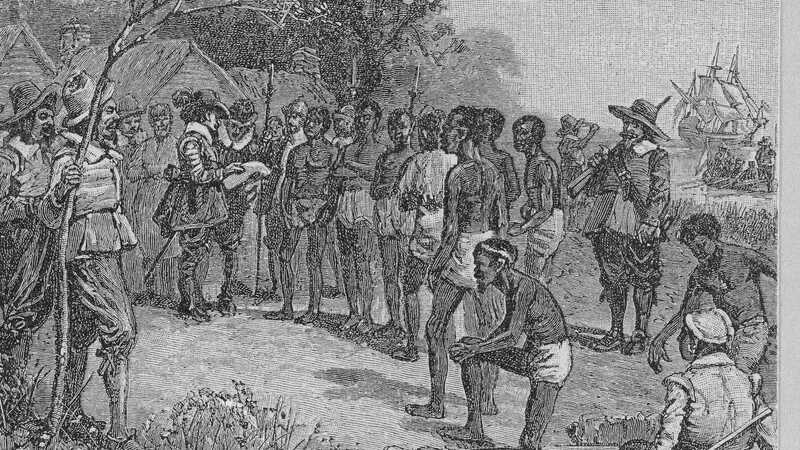|
Among the most contentious statements in the 1619 Project is in Nikole Hannah-Jones’s opening essay: “that the year 1619 is as important to the American story as 1776. That black Americans, as much as those men cast in alabaster in the nation’s capital, are this nation’s true ‘founding fathers.’” Critics commonly paraphrase this as claiming the American story really starts in 1619.
Stories begin where the storyteller begins them. Novelists may open with a dramatic incident, backstory, or a portrayal of ordinary life. Narrative historians, too, must choose where to start. It’s a question of focus and perspective, not fact. As the late Professor Geoff Blodgett taught us at Oberlin long ago, facts never speak for themselves. Even the most objective chronicler must decide which events to record and in what order. I have yet to see a United States history that begins on July 4, 1776, unless as a hook. In the “western civilization” approach of my school years, our national story started with the Enlightenment, or the Magna Carta, or even democracy in ancient Athens. More traditional accounts might begin with Columbus in 1492; more recent ones, with indigenous life before colonists came from Europe. The arrival of captive Africans in Jamestown in 1619 is as legitimate a starting point as any other. To argue whether it’s true or false is meaningless.
4 Comments
Dennis M Doren
12/6/2021 07:53:12 am
True.
Reply
12/7/2021 12:09:40 pm
Interesting points, Sarah. I think that the crux of the 1619 date is akin to the Black Lives Matter statement. The question is not necessarily whether it is true or false, but is it important? I say both are important and relevant. Our country was founded, most likely, to preserve the institution of slavery. The wealth of White families was made at the expense of the enslaved people, the majority of them from Africa. That wealth gap has continued to this day. We have been a wealthy country due to Black unpaid labor. I think that is central to the history of our country. Thanks.
Reply
12/8/2021 07:14:11 am
I fully agree that the question is importance rather than truth or falsehood, although critics of the 1619 seem to think it's the latter. Unquestionably much (not all) of the nation's wealth rested on unpaid, forced slavery, with effects that continue. The evidence I have seen so far does not appear to me to support the contention that preserving slavery was a major motive for the American Revolution, which began in the North at a time slavery seemed destined to wane naturally (before the invention of the cotton gin). New evidence could change my mind. Do we have multiple speeches and letters urging independence for the sake of slavery?
Reply
Leave a Reply. |
AuthorI'm a historian who writes novels and literary nonfiction. My home base is Madison, Wisconsin. Archives
July 2024
|



 RSS Feed
RSS Feed